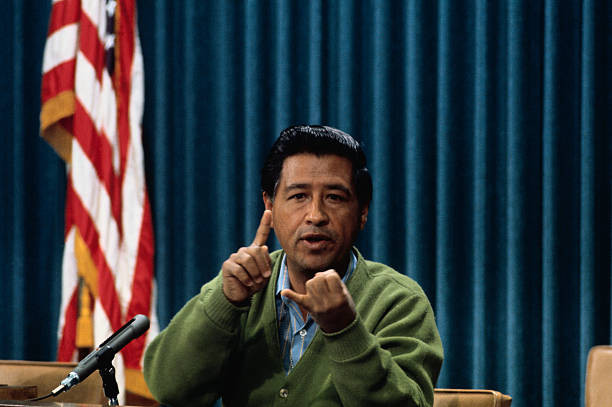Cesar Chavez was born in Yuma, Arizona, on March 31, 1927. He was an American labor leader and civil rights activist who led the fight for improved working conditions for farm laborers, employing tactics such as strikes and boycotts. He was highly skilled at community organizing, serving as a strategic nonviolent activist, and he was a powerful speaker and writer. Despite being described as shy, he was passionate about being a communicator. While he was doing these things, his family, unfortunately, lost their farm during the Great Depression, and the Chavez family soon experienced poverty and injustice. It was an extreme form of migrant farm work, accompanied by criticism as a leader.
Chávez had a strong desire to help many farmworkers and envisioned a future where everyone, including farmworkers, was treated with dignity, fairness, and respect. He believed in nonviolence and led peaceful marches and strikes. One of the most well-known marches was the grape boycott in 1980, where he told many people not to purchase grapes until farm workers were treated better. Eventually, a lot of people listened, and a lot of progress was made.
Something he said before was, “What is at stake is human dignity; if a man is not accorded respect, he cannot protect himself, and if he does not respect himself, he cannot demand it”. What he meant by this quote is that being respected by others and respecting yourself are fundamental to fighting for justice and protecting your rights. For farmworkers who were often mistreated, this quote meant a lot in their own success. I strongly believe that Cesar Chavez was an amazing activist and wanted to help everyone in his own community, including employees he didn’t know, and that he should be remembered and talked about more often worldwide on his day of death.








